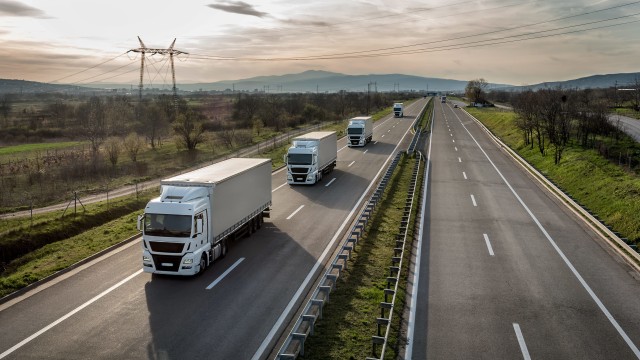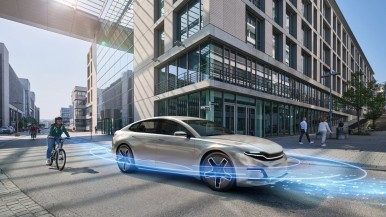Traffic jams, accidents, blocked roads – for many people in Germany, the thought of vans and trucks in traffic leads to just one thing: stress. More and more trucks are flooding the country’s freeways and highways, and this inevitably pushes up the number of serious accidents involving commercial vehicles. One result of this is that Germans would increasingly feel safer with fully automated, driverless trucks on the road. This is the outcome of a survey conducted by Bosch and Innofact AG in the lead-up to the IAA Commercial Vehicles in Hannover. While almost 40 percent of respondents would rather that trucks have a human driver at the wheel, already more than one in three (37 percent) no longer have a preference for a human over a machine. In fact, one in four respondents would have more confidence in an autonomous truck than in a human driver. For now, driverless trucks are still an unrealized vision. But the survey shows that in Germany, people increasingly favor automated trucks when it comes to safety. The intelligent technology on board such trucks could prevent a large number of accidents: the reality is that nine out of ten accidents are due to human error.
Mobility is the largest Bosch Group business sector. It generated sales of 55.8 billion euros in 2024, and thus contributed around 62 percent of total sales. This makes the Bosch Group one of the leading mobility suppliers. Bosch Mobility pursues a vision of mobility that is safe, sustainable, and exciting. For its customers, the outcome is integrated mobility solutions. The business sector’s main areas of activity are electrification, software and services, semiconductors and sensors, vehicle computers, advanced driver assistance systems, systems for vehicle dynamics control, repair-shop concepts, as well as technology and services for the automotive aftermarket and fleets. Bosch is synonymous with important automotive innovations, such as electronic engine management, the ESP anti-skid system, and common-rail diesel technology.
The Bosch Group is a leading global supplier of technology and services. It employs roughly 412,000 associates worldwide (as of December 31, 2025). According to preliminary figures, the company generated sales of 91 billion euros in 2025. Its operations are divided into four business sectors: Mobility, Industrial Technology, Consumer Goods, and Energy and Building Technology. With its business activities, the company aims to use technology to help shape universal trends such as automation, electrification, digitalization, connectivity, and an orientation to sustainability. In this context, Bosch’s broad diversification across regions and industries strengthens its innovativeness and robustness. Bosch uses its proven expertise in sensor technology, software, and services to offer customers cross-domain solutions from a single source. It also applies its expertise in connectivity and artificial intelligence in order to develop and manufacture user-friendly, sustainable products. With technology that is “Invented for life,” Bosch wants to help improve quality of life and conserve natural resources. The Bosch Group comprises Robert Bosch GmbH and its roughly 490 subsidiary and regional companies in over 60 countries. Including sales and service partners, Bosch’s global manufacturing, engineering, and sales network covers nearly every country in the world. Bosch’s innovative strength is key to the company’s further development. At 136 locations across the globe, Bosch employs some 82,000 associates in research and development.
Additional information is available online at www.bosch.com, www.bosch-press.com.





